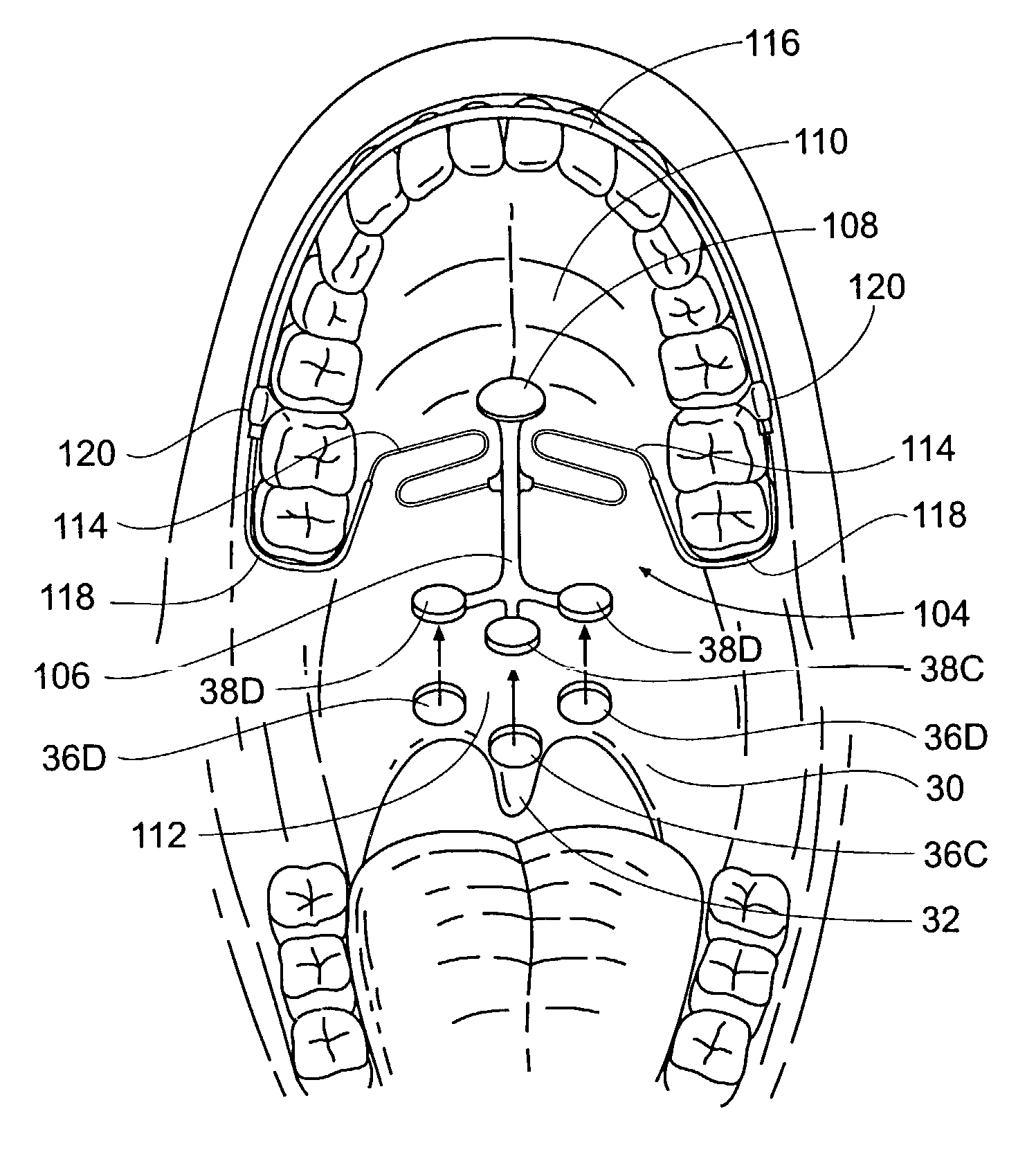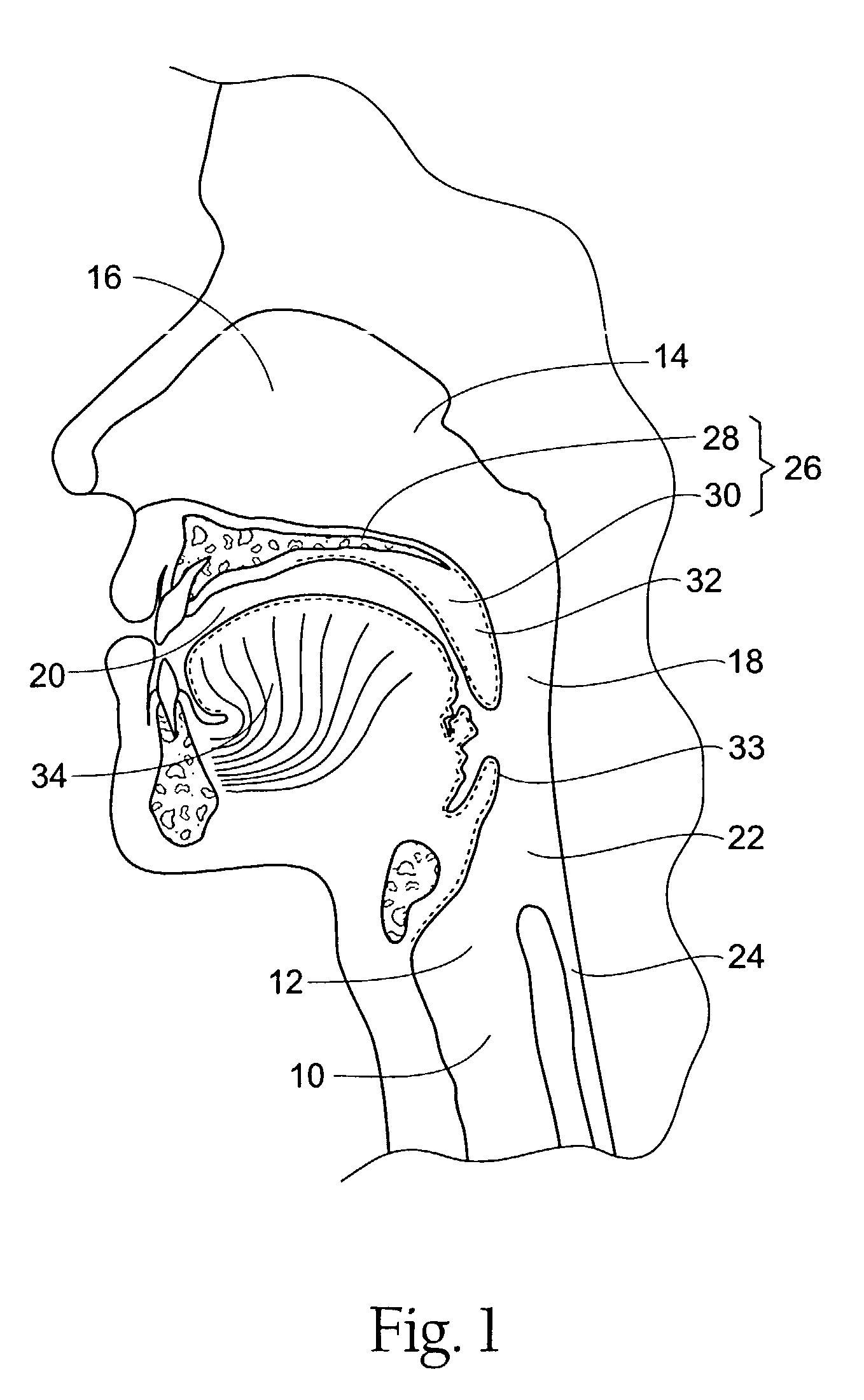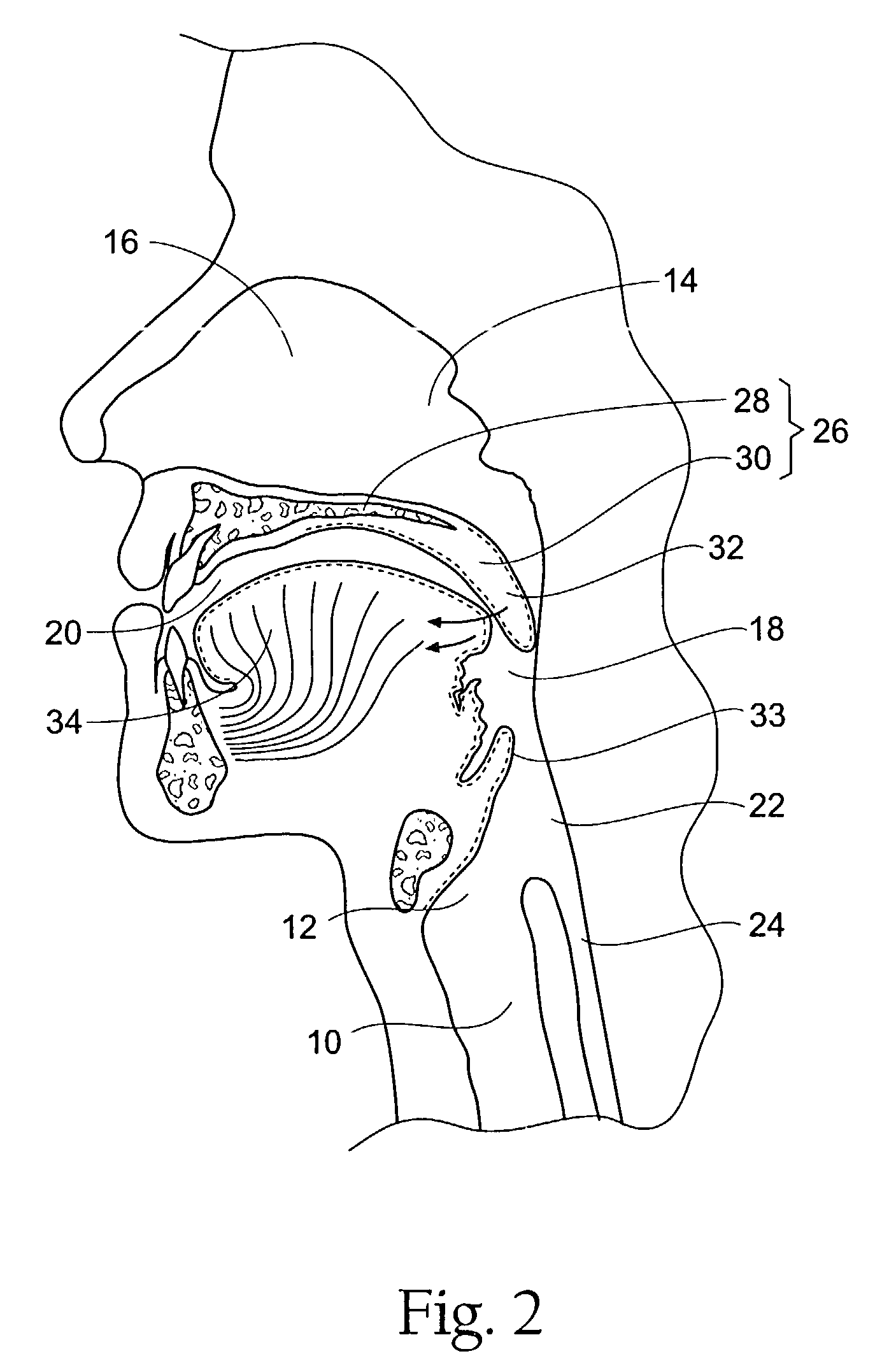Systems and methods for moving and/or restraining tissue in the upper respiratory system
a technology of upper respiratory system and tissue, applied in the field of systems and methods for moving and/or restraining tissue in the upper respiratory system, can solve the problems of obstructing breathing, affecting sleep quality, and affecting sleep quality, and achieves the effects of reducing or preventing snoring and obstructing sleep apnea, and simple, cost-effective devices
- Summary
- Abstract
- Description
- Claims
- Application Information
AI Technical Summary
Problems solved by technology
Method used
Image
Examples
third embodiment
3. THIRD EMBODIMENT
[0132]FIGS. 24 and 25 show another alternative embodiment of an oral appliance 142 that can be releasably mounted in the oral cavity 20, to hold one or more secondary magnets 38 in alignment with one or more primary magnets carried by the soft palate and / or uvula.
[0133]In this embodiment, the appliance 142 comprises a generally U-shaped body 144. One or more secondary magnets 38 are carried by a bar 146 extending from slots 148 on the medial surface of the body 144.
[0134]The body 144 is a generally hollow body having an open top 136 and open ends 138, sized and configured to rest on the upper teeth, as seen in FIG. 25. Placement of the appliance 142 on the upper teeth results in attractive magnetic forces (represented by an arrow in FIG. 25) between the primary and secondary magnets 36 and 38, drawing the primary magnet 36 toward the secondary magnet 38, thereby pulling the uvula 32 and soft palate 30 into a forward, stabilized position.
[0135]The bar 146 can be co...
first embodiment
1. FIRST EMBODIMENT
[0179]FIG. 32 shows another system for treating sleeprelated breathing disorders such as snoring, upper airway resistance syndrome and obstructive sleep apnea. The system includes a device 196 carrying a more mobile primary magnet 36, which is implanted within the tongue 34, and a less mobile secondary magnet 38, which is carried by an external collar 158 against the chin.
[0180]The device 196 comprises a bracket 198 coupled to an arm 200. In this embodiment, the bracket 198 is affixed to the posterior portion of the mandible 186 using a bone screw 174 or other permanent means of attachment. The mandible 186 provides a stable platform.
[0181]The arm 200 is implanted into tongue tissue, reaching toward the back of the tongue 34 and sweeping upward. At the upper end of the arm 200 there is a paddle 201 configured to press in an anterior direction on the muscular tissue within the tongue 34.
[0182]The arm 200 is pivotally attached to the bracket 198 with the pivot or hi...
second embodiment
2. SECOND EMBODIMENT
[0191]FIGS. 34 to 37 illustrate another embodiment of the invention in which a device 216 carrying a primary magnet 36 can be implanted within the mandible 186 for treating sleep-related breathing disorders such as snoring, upper airway resistance syndrome and obstructive sleep apnea. The device 216 comprises a capsule 218 coupled to a lifting arm 220. The capsule 218 includes a bore 222 in which the primary magnet 36 is positioned slidably and stabilized against the top end of the bore 222 by a light force coil spring 224. Below the magnet 36 is a linkage mechanism 226 on which the magnet 36 rests or, alternatively, is attached to.
[0192]The linkage mechanism 226 has a connecting rod 230 contacting the bottom surface of the magnet 36, which is coupled to a bellcrank 232, which pivots about a pivot point 228. The bellcrank 232 is coupled to the lifting arm 220 by a pull wire 236.
[0193]It is to be understood that the length of the arms of the bellcrank 232 on oppos...
PUM
 Login to View More
Login to View More Abstract
Description
Claims
Application Information
 Login to View More
Login to View More - R&D
- Intellectual Property
- Life Sciences
- Materials
- Tech Scout
- Unparalleled Data Quality
- Higher Quality Content
- 60% Fewer Hallucinations
Browse by: Latest US Patents, China's latest patents, Technical Efficacy Thesaurus, Application Domain, Technology Topic, Popular Technical Reports.
© 2025 PatSnap. All rights reserved.Legal|Privacy policy|Modern Slavery Act Transparency Statement|Sitemap|About US| Contact US: help@patsnap.com



